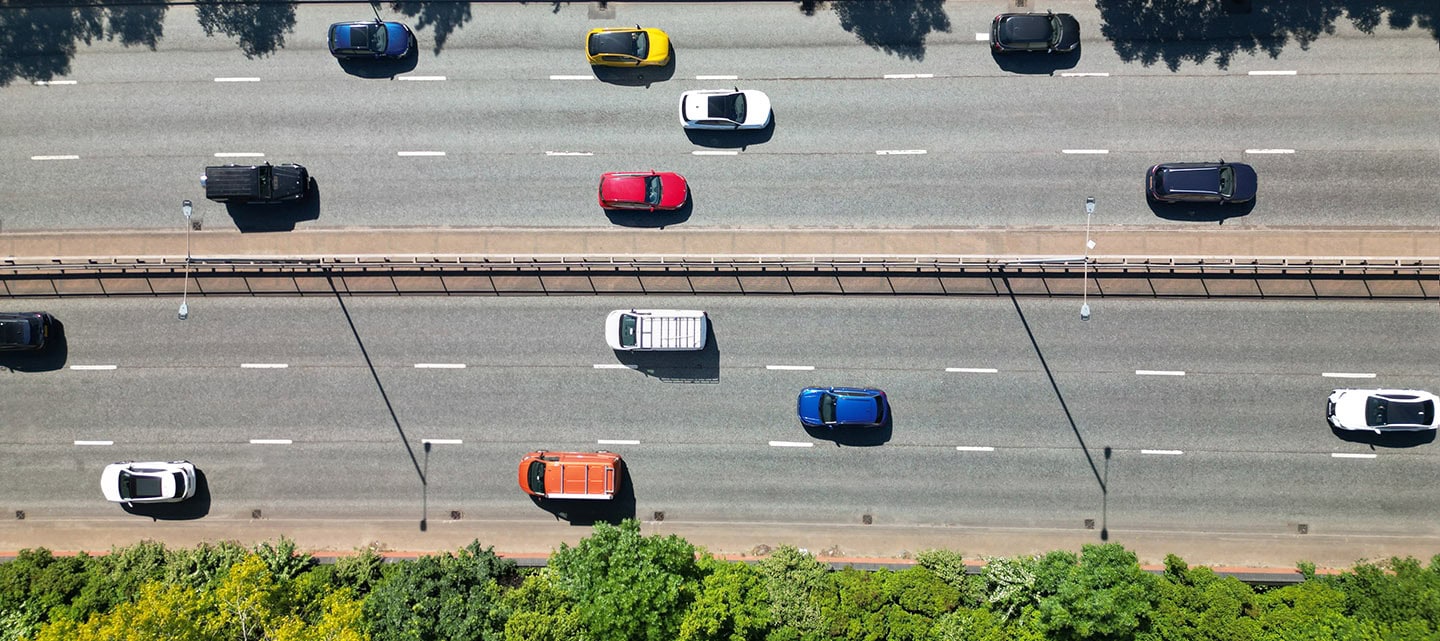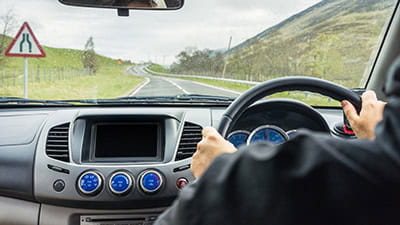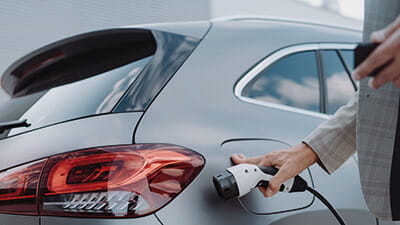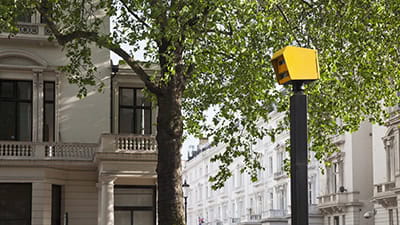
To legally drive, you must have both car tax and insurance. But you might have some questions: Do you need car insurance to tax your car? How much tax will you owe? Are there any exemptions? Our comprehensive guide covers all these topics and more.
To tax your car, you need valid car insurance. The Continuous Insurance Enforcement (CIE) law requires your car to be insured at all times, even if you're not driving it.
You don't need to have your insurance documents with you when you pay your tax because the DVLA can check this automatically using the Motor Insurance Database. You can also get temporary car insurance to tax your car, but keep in mind that it might not appear on the Motor Insurance Database immediately.
If you get a Statutory Off Road Notification (SORN) for your car, you don't need to tax or insure it. This is the only exception. However, with a SORN, you can't drive or park your car on public roads – it must be kept on private land.
The cost of your car tax depends on two key factors: the type of vehicle you have and how old it is. A lot of it is based on your car's CO2 emissions. If your car is greener (like newer, hybrid models), you'll pay less road tax.
The price also depends on whether your vehicle was made before or after 1st April 2017.
When you register your vehicle for the first time, the car tax rate is determined by its CO2 emissions. Diesel cars that don't meet the Real Driving Emissions 2 (RDE2) standards for nitrogen oxide emissions must pay a higher rate.
Here are the first-year current rates:
| CO2 emissions | Petrol cars, diesel cars that meet RDE2, alternative fuel and zero emissions cars | All other diesel cars |
|---|---|---|
|
0g/km |
£10 |
£10 |
|
1 to 50g/km |
£110 |
£130 |
|
51 to 75g/km |
£130 |
£270 |
|
76 to 90g/km |
£270 |
£350 |
|
91 to 100g/km |
£350 |
£390 |
|
101 to 110g/km |
£390 |
£440 |
|
111 to 130g/km |
£440 |
£540 |
|
131 to 150g/km |
£540 |
£1,360 |
|
151 to 170g/km |
£1,360 |
£2,190 |
|
171 to 190g/km |
£2,190 |
£3,300 |
|
191 to 225g/km |
£3,300 |
£4,680 |
|
226 to 255g/km |
£4,680 |
£5,490 |
|
Over 255g/km |
£5,490 |
£5,490 |
| Fuel type | Single 12 month payment | Single 12 month payment by Direct Debit | Total of 12 monthly payments by Direct Debit | Single 6 month payment | Single 6 month payment by Direct Debit |
|---|---|---|---|---|---|
|
Petrol, diesel, electric & alternative fuel vehicles |
£195 |
£195 |
£204.75 |
£107.25 |
£102.38 |
Cars with a list price of £40,000 or more must pay an extra £425 per year for five years from the second time you tax your vehicle.
Vehicles registered between 1st March 2001 and 31st March 2017 fall into a specific band and pay a rate of tax based on their fuel type and CO2 emissions.
| Car tax band & CO2 emission | Single 12 month payment | Single 12 month payment by Direct Debit | Total of 12 monthly instalments by Direct Debit | Single 6 month payment | Single 6 month payment by Direct Debit |
|---|---|---|---|---|---|
|
A: Up to 100g/km |
£20 |
£20 |
£21 |
N/A |
N/A |
|
B: 101 to 110g/km |
£20 |
£20 |
£21 |
N/A |
N/A |
|
C: 111 to 120g/km |
£35 |
£35 |
£36.75 |
N/A |
N/A |
|
D: 121 to 130g/km |
£165 |
£165 |
£173.25 |
£90.75 |
£86.63 |
|
E: 131 to 140g/km |
£195 |
£195 |
£204.75 |
£107.25 |
£102.38 |
|
F: 141 to 150g/km |
£215 |
£215 |
£225.75 |
£118.25 |
£112.88 |
|
G: 151 to 165g/km |
£265 |
£265 |
£278.25 |
£145.75 |
£139.13 |
|
H: 166 to 175g/km |
£315 |
£315 |
£330.75 |
£173.25 |
£165.38 |
|
I: 176 to 185g/km |
£345 |
£345 |
£362.25 |
£189.75 |
£181.13 |
|
J: 186 to 200g/km |
£395 |
£395 |
£414.75 |
£217.25 |
£207.38 |
|
K*: 201 to 225g/km |
£430 |
£430 |
£451.50 |
£236.50 |
£225.75 |
|
L: 226 to 255g/km |
£735 |
£735 |
£771.75 |
£404.25 |
£385.88 |
|
M: Over 255g/km |
£760 |
£760 |
£798 |
£418 |
£399 |
If you’re unsure which band your vehicle falls into, check your V5C logbook.
Some vehicles are exempt from car tax, meaning their owners don't have to pay it. These include:
Even though these vehicles don't require car tax, owners still need to complete a road tax application, but there won't be any payment.
Note: Electric vehicle owners will need to pay car tax from 1st April 2025. They were previously exempt.
Your car's logbook (V5C) is important because it proves you own the car and includes details like when it was registered, who made it and the engine size. You usually need it to pay car tax.
If you lose your logbook, you can still pay your car tax. In 2024, the DVLA introduced a new service that lets you pay your car tax even if you don't have your logbook.
You can go to the government website to apply for a new logbook and pay your car tax at the same time. Before this, you had to wait for the new logbook to arrive before you could pay your car tax.
You have three options to renew your car tax: online, by telephone or at the Post Office (only specific Post Offices offer this service).
For more details, check out our comprehensive guide to renewing your car tax.
If you’re unsure about when your car tax is due or you haven’t received a V11 reminder letter, you can quickly check your renewal date online. The only information you need is your registration number.
Learn how to check your car tax status in our dedicated guide.
Whether you're looking for straightforward insurance or cover that's packed with extras, our car insurance has plenty of options for people over 50.


Choose our highest car cover level Saga Plus and freeze the price of your car insurance for 3 years if nothing changes. T&Cs apply.
There's plenty to explore and learn about our car insurance cover.

Discover how to easily calculate your average yearly mileage using Saga's guide and mileage calculator.

Explore our comprehensive guide to car insurance fraud, where you’ll find detailed insights into the various types and their potential consequences.

If you’re thinking of driving towards a greener future, here’s what you need to know about electric car insurance.

Your needs and experience catered for, with over 80s car insurance from Saga.

Discover everything you need to know about speed awareness courses and how to qualify for them with our detailed guide.

It’s vital you know or you could be in very hot water. Here’s how to check your car insurance.

Explore the best methods to prevent road rage in our comprehensive guide.

Thinking about taking your vehicle off the road? You’ll need to officially declare it by applying for a SORN. Discover all the key details in our comprehensive guide.